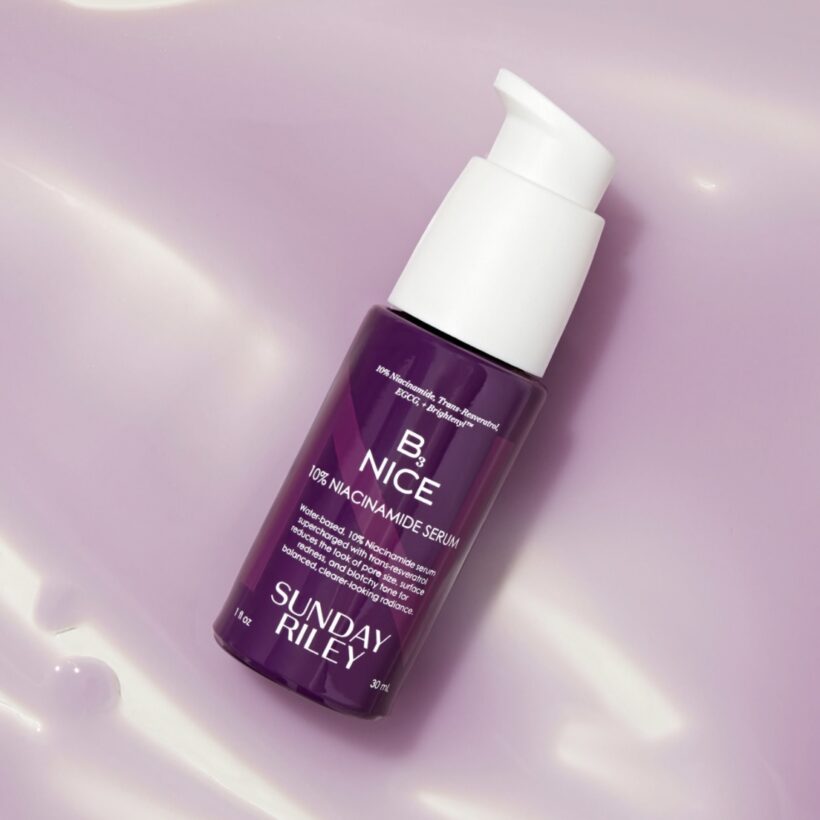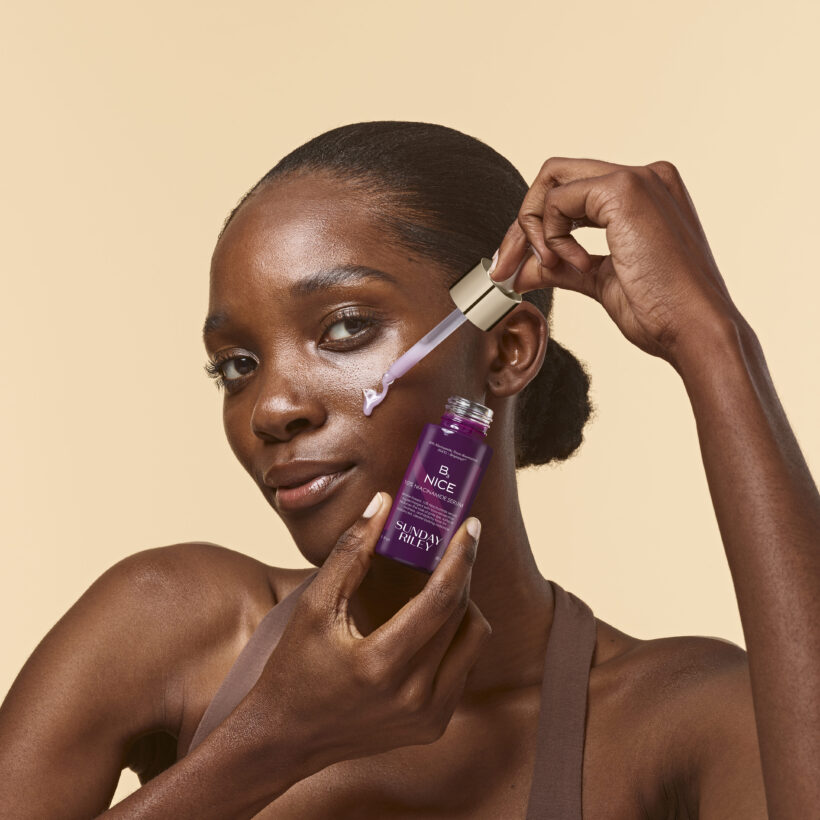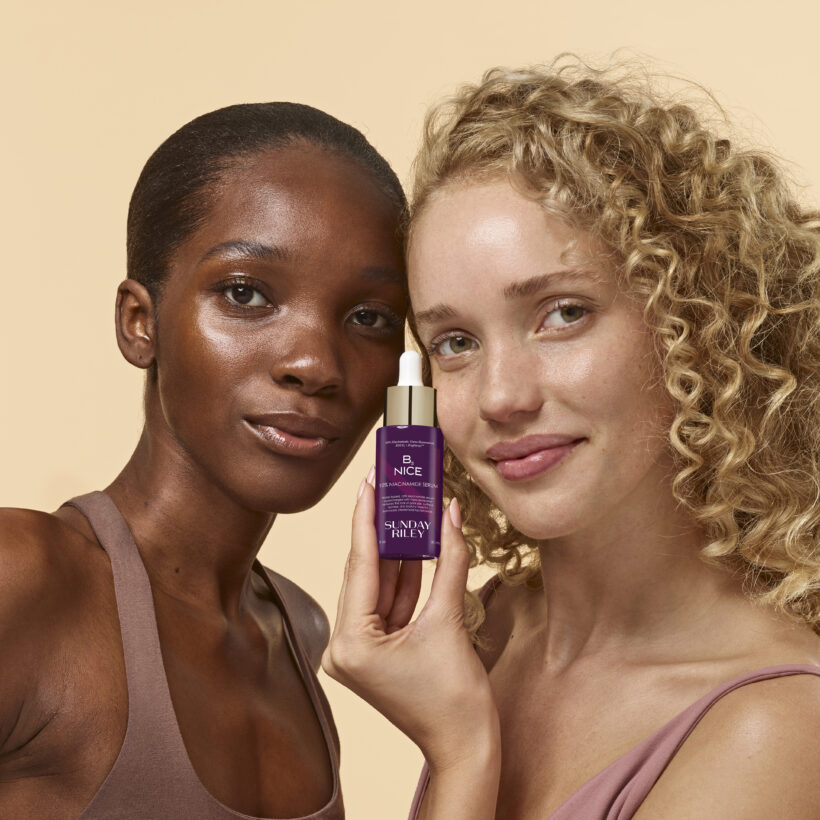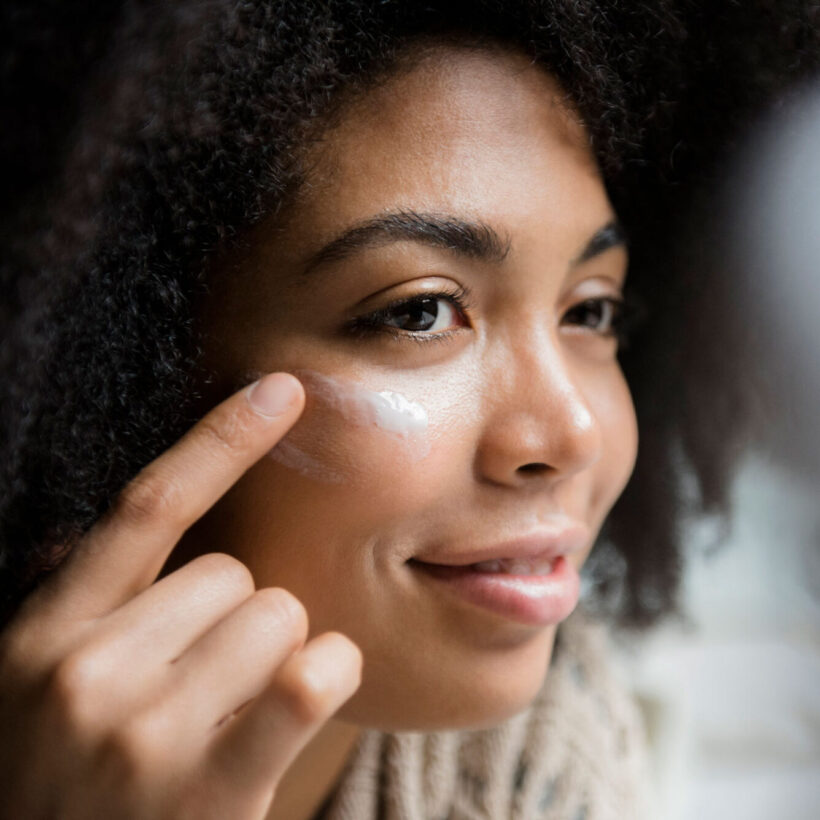Pregnancy can be one of the most restrictive times in one’s life, during which everything from coffee to deli meat is, unfortunately, off limits. And, as anyone who’s been pregnant can attest, those limitations extend to the skincare shelf, too. Ingredients like retinoids and salicylic acid (at certain concentrations) are both considered no-gos. That can make it tricky (to put it lightly) to tackle common issues during pregnancy, such as excess pigmentation and hormonal acne.
One big exception? Niacinamide. Also known as vitamin B3, this famously friendly ingredient can help with a host of skin concerns. “It’s incredibly safe — and although higher percentages have higher risk of irritation, it is very uncommon to have an allergic reaction to niacinamide because it is a natural vitamin that is required for optimal skin health,” says Rachel Nazarian, M.D., a dermatologist at Schweiger Dermatology in New York City. “It’s really one ingredient that can multitask on so many levels, addressing pigment, hydration, and skin protection.”
Here, all the ways it can benefit skin while you’re pregnant or breastfeeding.
Hadley King, M.D.,
is a dermatologist in New York City.
Rachel Nazarian, M.D.,
is a dermatologist at Schweiger Dermatology in New York City.
Marisa Garshick, M.D.,
is a dermatologist in New York City.
Meet the Experts
How pregnancy changes your skin
Along with the passing queasiness and the bloating of early pregnancy comes a change in skin. And while some parents-to-be experience a “pregnancy glow,” that’s not the reality for many others.
For starters, you might be facing breakouts. “Acne and melasma are some of the most common skin conditions associated with pregnancy and often result from hormonal changes, which can contribute to changes in sebum production and increased pigment production,” says Marisa Garshick, M.D., a dermatologist in New York City. (We’ll get to melasma in a moment.)
On top of that, dryness and itching can be common — not to mention an uptick in sensitivity. “Pregnancy can oftentimes increase sensitive skin conditions such as atopic dermatitis and eczema,” says Dr. Nazarian. “Oftentimes the skin is also more sensitive to perfumes, and other agents that can decrease the strength of the skin barrier.” Skin feeling tight or tingly after using your usual exfoliant? The good news is that it’s not just you.

How niacinamide helps improve acne
Niacinamide can indeed help reduce that pregnancy acne. While its mode of action isn’t quite as targeted as, say, benzoyl peroxide or a retinoid, “niacinamide can help to regulate sebum production so may help to control oil, and is also anti-inflammatory — meaning it helps to improve the redness that may be associated with breakouts,” says Dr. Garshick.
How niacinamide helps improve melasma
For those who have yet to experience it, melasma is one of the most vexing skin conditions out there, in part because it’s so multifactorial; while hormones play a role in its formation, so do sun exposure and genetics. It entails brown patches or spots that commonly arise during pregnancy (which is why it’s known as the “mask of pregnancy”) and can either go away on its own or become chronic, lasting for years after pregnancy.
Now, for some good news: “Niacinamide can decrease some of the pigment in melasma, helping to improve overall skin tone,” says Dr. Nazarian. In fact, a 2011 study found that it performed similarly to hydroquinone, which tends to be a first-line intervention but is banned in many countries — and is, no surprise here, off-limits during pregnancy.
How niacinamide helps improve dryness and sensitivity
Niacinamide’s anti-inflammatory credibility makes it a winner for those with sensitive skin — and anyone with an otherwise impaired skin barrier. In fact, “studies have shown that topical niacinamide can have stabilizing effects on the skin’s barrier function, which can help improve moisture retention,” says New York City dermatologist Hadley King, M.D. “It also increases the skin’s production of ceramides, which help strengthen the skin barrier, preventing loss of moisture.”
Plus, it can be used in combination with other ingredients to help improve their tolerability, says Dr. Garshick. While it’s best known for being paired with retinol to blunt the latter’s drying effects, it can also team up with exfoliants, like glycolic acid (which is considered pregnancy-safe at low concentrations), to offset any potential for dryness.
What to look for in a niacinamide product
Not only is niacinamide safe to use on a daily basis, but “it does not tend to cause irritation or inflammation, and results will be improved with regular use,” says Dr. King.
If you’re using it for its brightening properties in particular, consider seeking it out in a formula that pairs it with other skin tone-evening actives. “I like when it is combined with other collaborative ingredients, such as centella asiatica and licorice root extract,” says Dr. Nazarian. “Using different pathways to treat melasma typically offers the greatest improvement.”
And, as luck would have it, you can find 10% niacinamide paired with centella asiatica — as well as a host of powerful antioxidants, including trans-resveratrol and green tea-drived EGCG — in the new Sunday Riley B3 Nice 10% Niacinamide Serum; they work together in this lightweight formula to even out skin tone, minimize the look of pores, and improve the appearance of redness. Plus, for pregnancy breakouts, it also offers curcuminoids, which are compounds derived from turmeric that soften the look of blemishes.
Ultimately, niacinamide is an incredible active to incorporate during any phase in life, pregnant or otherwise. Thanks to its versatile benefits and easygoing nature, you can slather it on knowing it’s as safe as it gets.
We only recommend products we have independently researched, tested, and loved. If you purchase a product found through our links, Sunday Edit may earn an affiliate commission.








